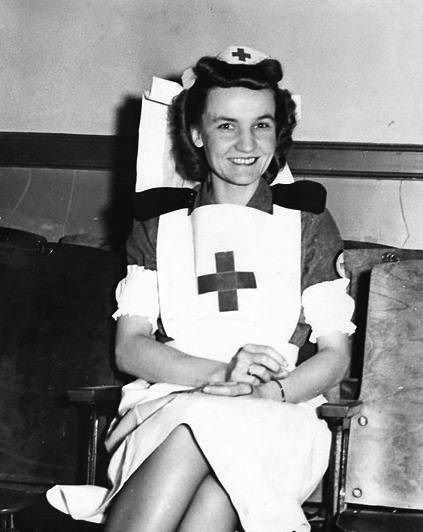My mother turns 100 years old today, totally screwing up my retirement-budget calculations.
I put her longevity down to stubbornness. She never was a quitter, except when it came to cigarettes. (She once paid a hypnotist to help her stop smoking. It didn’t work but she couldn’t stomach the idea of wasting the money, so went cold turkey anyway.)
Or maybe we should credit her internal strength. She might have lost her mobility, much of her hearing, most of her eyesight and, occasionally, her teeth, but she retains her ability to laugh, particularly at herself. A brittle person couldn’t do that.
When COVID-19 nudged her beloved little brother out the door in March, we feared the loss might be the end of her, but no, she soldiered on. Her response shouldn’t have been a surprise, given what she told me a few years ago after I, reluctantly, passed on some heartbreaking news that I thought might buckle her. “Listen,” she said. “There will be half a dozen times in life when you will be blindsided by something so painful that it brings you to your knees. You won’t think you will ever get up again. But you will.”
She should know. She arrived in 1920 just as the Spanish flu pandemic finally petered out, having killed maybe 50 million people over a two-year span. That’s 50 times as many as have died from COVID-19, and at a time when the global population was a quarter of what it is today.
Her birth came exactly four years after four machine gun bullets left her father half-dead in the blood and mud of the Somme during the First World War. He survived, went on to a life as a CNR locomotive engineer (as children, my mother would admonish us to hold our noses whenever we crossed tracks belonging to the rival Canadian Pacific) but he always had what was referred to as a game leg that required ongoing operations.
Her family bounced around Alberta chasing work during a decade-long Great Depression that began when she was eight years old, and a world war that broke out just as she turned 19. She still talks of those friends who marched off, never to return — or to come back invalided to the Calgary hospital where she volunteered. In those days, mothers would run inside their houses, slam the doors and draw the drapes when the telegram man appeared on the street, such was the fear of getting one of those dreaded “Regret to advise that your son…” messages from the military.
The post-war world brought stability, but never prosperity (though not having much gave her empathy for those with even less). Nor was motherhood always the dream she imagined. There was the discovery of her drunken teenage son face down in the driveway in the traditional bracing-for-an-earthquake position one 3 a.m. He might also have mooned the diners while strolling past the Highlander Restaurant, not knowing there were family members — and their friends — inside. I like to think these experiences helped her build character.
My sisters, who would prefer to remain anonymous but are Betty Jakel and Maggie Knox of Kamloops, also contributed. They would wait until Mum was seated in a washroom stall at Woodward’s, ask her a question that demanded a long answer, then quietly back out the door so that the next woman to enter would be treated to a rambling monologue from the lone crackpot in cubicle three.
Mum gave as good as she got, though, retaliating by sending us to school with wax paper sandwiches, or driving like Vin Diesel, causing some of us to lose our hair early. In her 90s, as her visiting children exited her home she would stand in her window and feebly warble “don’t leeeave me,” which would cause passersby to glare at us reprovingly, which filled her with joy.
Today, we’ll gather outside that window, grouped in one bubble after another, and bellow at her over the phone. If we’re lucky, she’ll take those teeth out to recite “She sell seashells by the seashore,” just to alarm/entertain the great-grandchildren. Fun, but hardly the celebration turning 100 deserves.
One hundred years! On the day she was born, Babe Ruth got a hit for the New York Yankees. Mainland B.C. had eight kilometres of paved highway. Canada had 300,000 automobiles, as compared to 36 million today. The province was holding a plebiscite on whether to end Prohibition. Ballpoint pens, credit cards, sunglasses, bubble gum and the sale of sliced bread were all in the future. She was born the year before Amelia Earhart began taking flying lessons.
She has not seemed particularly fazed by the pandemic. While it might overwhelm those of us who have lived free of real — or at least generational — adversity, to her it’s just another crisis. Think six months of being locked inside with Netflix is hard? Try six years of war. Try losing most of those you have ever loved.
That’s her 100-year lesson. If she can endure, so can we.



